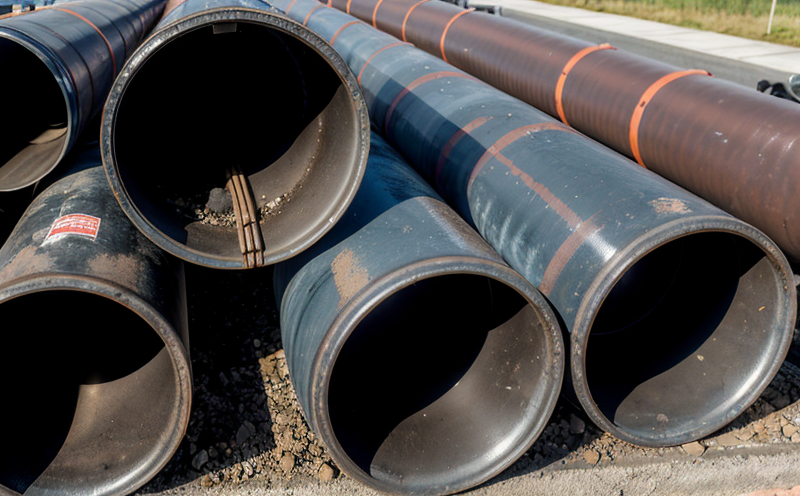EN 12266 Leak Tightness Testing of Plastic Pipe Valves
The EN 12266 standard is widely recognized in the industry as a robust method for assessing the leak tightness performance of plastic pipe valves. This service focuses on ensuring that the valve systems, which are critical components in plumbing and industrial piping applications, meet stringent quality standards to prevent leaks that can lead to costly downtime or environmental hazards.
The importance of this test cannot be overstated, especially given the prevalence of plastic materials in modern infrastructure due to their durability, cost-effectiveness, and chemical resistance. The EN 12266 standard is particularly relevant for industries such as water supply, wastewater management, and industrial process piping systems where leaks can have significant financial and environmental consequences.
The test procedure involves the application of a specified pressure differential across the valve, followed by a period during which the rate of leakage is monitored. The valve must be able to withstand this pressure without allowing any detectable leakage beyond acceptable limits as defined in the standard. This ensures that the valves can perform reliably under typical operational conditions.
For quality managers and compliance officers, understanding these testing protocols helps ensure that products meet regulatory requirements and industry best practices. R&D engineers benefit from detailed insights into how different material compositions affect leak tightness performance, which can inform design improvements. Procurement teams also find value in this service as they can validate suppliers' adherence to international standards.
The EN 12266 leak testing process is crucial for maintaining high-quality product integrity and ensuring customer satisfaction. By adhering to these stringent tests, manufacturers demonstrate their commitment to delivering reliable products that meet or exceed industry expectations. This not only enhances brand reputation but also fosters trust with end-users who rely on the performance of plastic pipe valves.
Given the complexity of modern piping systems, it is essential for testing laboratories to utilize up-to-date equipment and methodologies. Our facility employs state-of-the-art instrumentation capable of accurately measuring minute leaks, ensuring precise results that can be relied upon by all stakeholders involved in valve manufacturing and installation.
Scope and Methodology
| Step | Description |
|---|---|
| 1. Pressure Application | The valve under test is subjected to a defined pressure differential as per EN 12266. |
| 2. Leak Monitoring Period | A specified duration during which the rate of leakage is continuously monitored. |
| 3. Acceptance Criteria | The valve passes if the detected leaks do not exceed predefined limits. |
The methodology outlined in EN 12266 ensures a standardized approach to leak tightness testing, providing consistent results across different manufacturers and laboratories. This standardization is vital for maintaining quality control processes and facilitating international trade by ensuring compatibility with global standards.
Benefits
- Ensures compliance with international standards (EN 12266).
- Reduces the risk of product failure in critical applications.
- Promotes reliability and trustworthiness among customers.
- Aids in identifying potential weaknesses early in the manufacturing process.
- Supports continuous improvement initiatives within companies.
- Facilitates smoother regulatory compliance processes.
- Enhances brand reputation through consistent product quality.
The benefits extend beyond mere compliance; they contribute to building a robust foundation for sustainable business operations. By incorporating rigorous leak tightness testing into their quality assurance programs, organizations can confidently deliver products that meet or surpass expectations, thereby fostering long-term customer satisfaction and loyalty.
Customer Impact and Satisfaction
Implementing EN 12266 leak tightness testing provides tangible advantages to customers by enhancing the overall quality of plastic pipe valves. This translates into reduced maintenance costs, lower operational expenses, and improved safety standards. For instance, leaks in critical piping systems can lead to water wastage, environmental contamination, or even catastrophic failures if not addressed promptly.
By leveraging this service, customers gain peace of mind knowing that the products they purchase are rigorously tested against stringent international benchmarks. This level of assurance builds trust and strengthens relationships between suppliers and end-users, ultimately driving greater customer satisfaction and loyalty.





